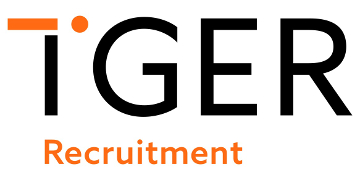Suddenly, this new technology was available to anyone with an internet connection. Able to generate content, write code, draft documents, contracts and streamline menial tasks, it can perform an unlimited number of tasks at the click of a button.
In the months that followed, Google released Google Bard and many new AI tools were established to tap into its potential. Fast forward ten months and governments are now drafting AI policy, the UK hosted the first global summit on AI and businesses are curious about adopting AI if they haven’t already done so.
There is plenty of literature on the benefits of AI and it’s power to shape businesses.
An article by Tiger Recruitment’s CEO for Forbes, details how employers can utilise its full potential. AI and Automation: HR’s Evolution into the Future, expands on the game-changing potential for AI and automation to positively impact onboarding, administration and other HR processes.
From the Tiger’s Mouth released a podcast episode on the ins and outs of adopting AI in HR.
However, before you jump on the AI bandwagon – unless you have a team of AI engineers – it’s imperative to know about the risks involved, how to mitigate them and adopt an AI policy that’s right for your organisation.
Transparency is key
AI can produce information at an unprecedented rate, freeing time for HR teams and other professionals for more strategic activities. However, concerns around the accuracy of AI-generated content have led to an increased need for companies to control where, when and how it is used.
Transparency in how AI technology is used within a business is crucial to building trust and this comes with the development of clear guidelines.
The risks of not being transparent can lead to a higher chance of misinformation appearing in employee work, or sensitive information being inadvertently fed to generative AI.
Communicating a policy to employees on using AI to assist with tasks will let them know the extent to which they can use it, when to be vigilant, when to avoid using it – and help reduce the risk factor and over-reliance on AI.
Staying compliant
AI and automation can significantly reduce the administrative burden on HR. It can help with reporting, such as tracking metrics like turnover, assist with DEI efforts and improve decision-making with data.
Data privacy and GDPR compliance are important concerns when using AI in HR. Ensuring that confidential information isn't fed into AI technology is essential to protect sensitive data.
Additionally, AI technology is biased and all generated information should be carefully considered before it is used to make decisions. HR professionals need to understand these limitations and potential biases to navigate using AI safely and in a legally compliant manner.
Ensure the human touch remains
Addressing ethical concerns is key as AI's role in HR grows. Human oversight and review are critical to prevent biases and errors in AI algorithms.
While AI enhances efficiency, it cannot replace human qualities like empathy and creativity, so striking a balance between automation and personalised experiences is vital.
AI should be implemented strategically, and HR teams must rely on human intuition and insight when making crucial decisions about promotions, employee movement and company culture.
Create an AI strategy fit for your company
HR professionals need to be at the forefront of creating a tailored AI strategy – and should act as champions of AI and automation to foster employee upskilling and understanding.
The strategy should communicate their stance on AI adoption and usage, emphasising the need for transparency in AI processes. Developing AI policies can set boundaries on usage and help employees understand its intended purpose and limitations.
Businesses should consider how employees might use AI tools and engage in open discussions or conduct surveys about whether to encourage it’s use. This use would differ depending on the industry and type of organisation – after conducting internal research, define three key uses of AI for your strategy and go from there.
Finally, given how quickly the technology is advancing, it would be worth investing in ongoing education about AI and its applications for employees to maximise its value and safe use.
Mitigating risks and embracing opportunities
While AI offers promising solutions, it is equally important to exercise caution and to avoid too much trust in AI models. Transparency, fairness, data privacy and a tailored AI strategy are essential to navigate these challenges successfully, futureproof your organisation and reap the benefits.
Tiger Recruitment can advise on your talent acquisition, HR processes and more in both the UK and internationally – get in touch to learn more.
Rebecca Siciliano is managing director at Tiger Recruitment.











